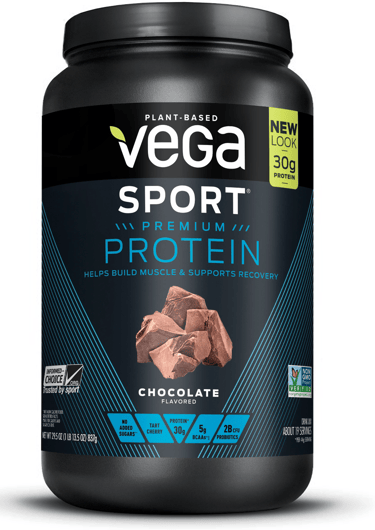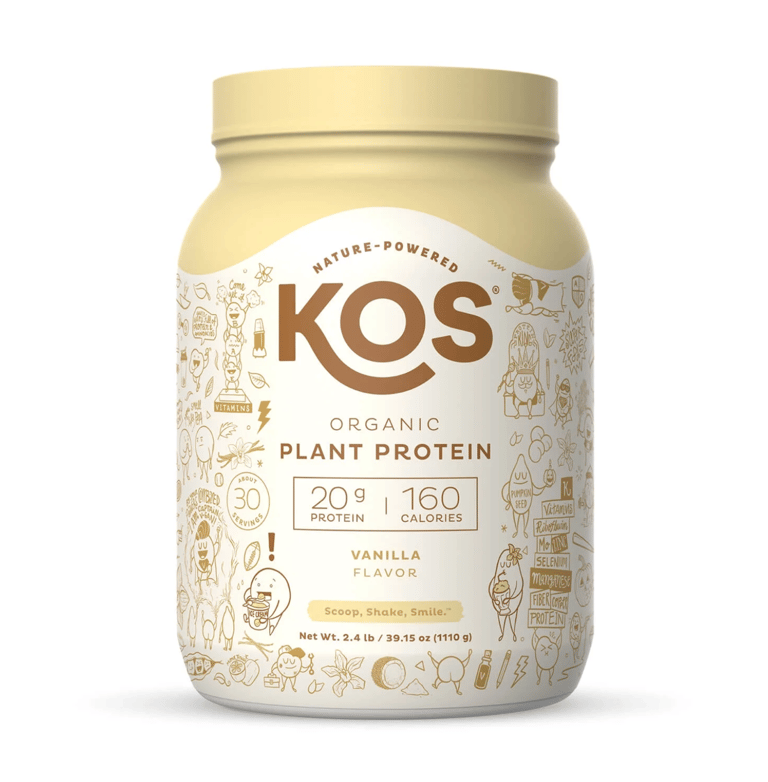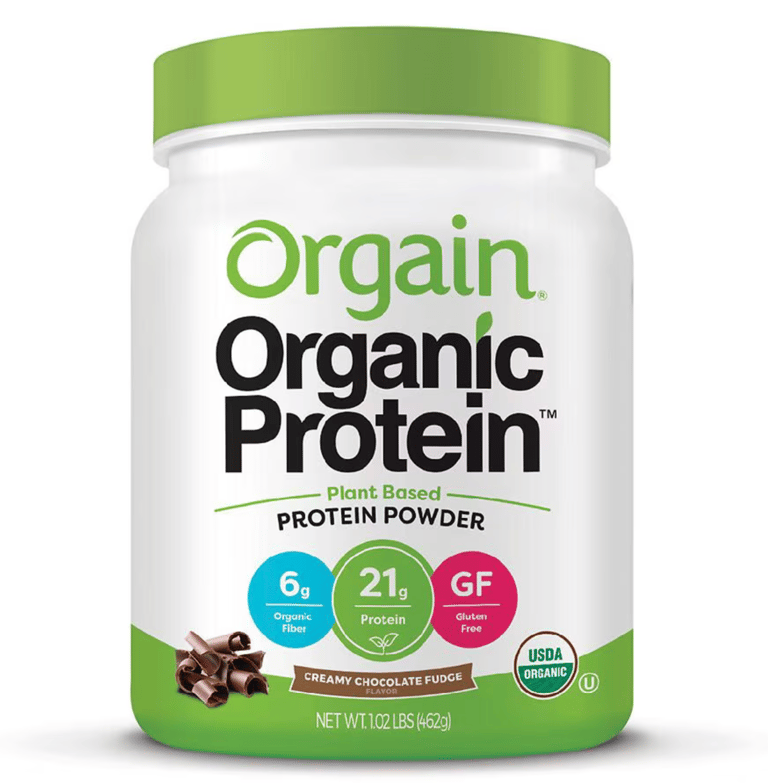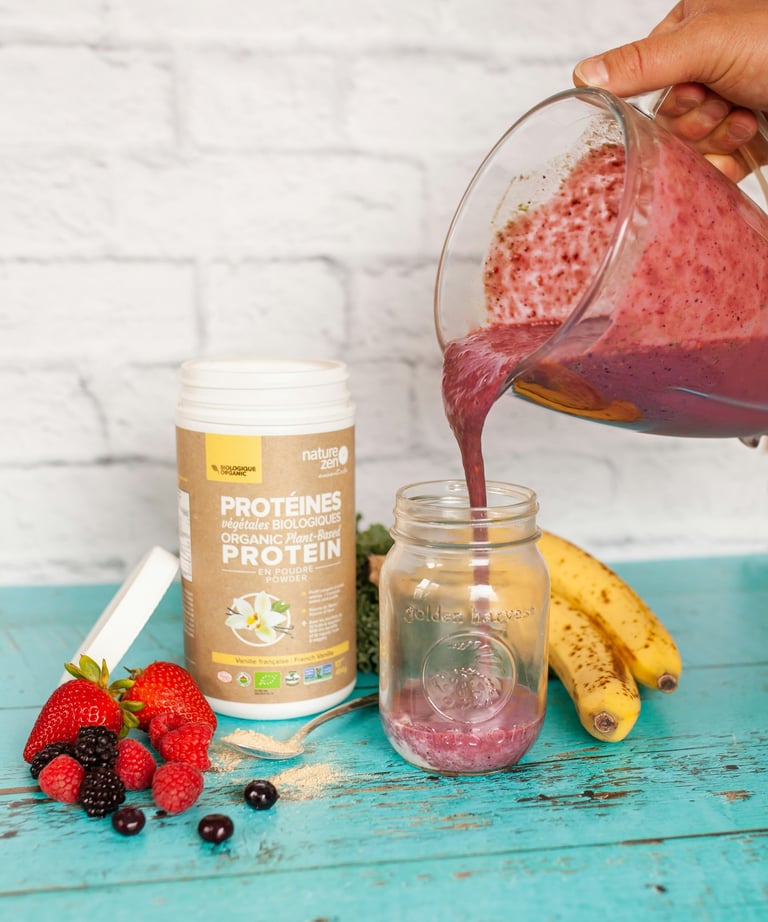Plant-Based Protein Powder vs. Whey
A Science-Backed Guide to Muscle Gains
Think you need whey for serious muscle gains? Think again. Modern plant-based protein powders can match animal proteins shake for shake – and we have the science (and top picks) to prove it.


The New Age of Plant-Based Protein Powders
Walk into any gym or nutrition store today, and you’ll see plant-based protein powder tubs sitting proudly next to the whey. Not long ago, many fitness enthusiasts were skeptical: Can a protein from peas, rice, or hemp really stack up to whey or casein? The game has changed. Fueled by better formulas and solid science, plant-based proteins have exploded in popularity among athletes and everyday gym-goers. They’re not just for vegans anymore – lifters and marathoners alike are swapping in plant proteins for their post-workout shakes.
Why the surge in interest? For one, these powders are friendlier on the stomach (no lactose in sight) and often kinder to the planet. But the biggest question remains: Are plant proteins as effective for building muscle and aiding recovery as animal-based proteins? This article makes a convincing case that yes, they absolutely can be, when you choose wisely. We’ll dive into the science comparing absorption, digestibility, and effectiveness of plant vs. animal proteins – and explain key concepts like biological value, amino acid completeness, and protein digestibility in simple terms. By the end, you’ll see why a well-formulated plant protein powder can fuel your fitness goals just as powerfully as whey.
Protein Quality 101: Biological Value, Amino Acids, and Digestibility
To understand how plant proteins measure up, let’s cover a few basics of protein quality in plain language. Not all proteins are created equal – their value to your body depends on amino acids and absorption. Here are the key concepts:
Biological Value (BV): This measures how efficiently your body can use a protein. In technical terms, BV is the proportion of absorbed protein that gets incorporated into your body’s own proteins. A higher BV means more of that protein is used for building muscle and tissue (and less is wasted). Egg protein traditionally scores very high (around 100) and is often the reference point. Whey protein can even exceed that slightly (whey isolate’s BV is around 104), making it a superstar. Many single-source plant proteins have lower BV – for example, soy’s BV is roughly in the 70–80 range – but this doesn’t tell the whole story.
Complete vs. Incomplete Proteins: Your body needs nine essential amino acids (EAAs) from food to build muscle. A “complete” protein contains all nine in sufficient amounts. Animal proteins (like whey, egg, or meat) are naturally complete, as is soy. Most plant proteins are incomplete alone – they might be missing or low in one or two EAAs. For instance, grains like rice are low in lysine, while legumes like peas are low in methionine. The good news? By combining different plant sources, we can fill these gaps. A classic example: pea protein (high in lysine, low in methionine) mixed with rice protein (low in lysine, high in methionine) yields a blend that together provides all the essential amino acids in balance. Modern plant protein powders take advantage of this synergy, using blends of pea, rice, hemp, quinoa, chia, etc., to achieve a complete amino acid profile just like an animal protein.
Protein Digestibility (PDCAAS & DIAAS): It’s not just what’s in the protein, but how well your body can digest and absorb it. The Protein Digestibility Corrected Amino Acid Score (PDCAAS) is a rating from 0 to 1 that evaluates protein quality considering amino acid content and digestibility. A score of 1.0 is the highest (meaning it’s fully digestible and complete in amino acids). Whey, casein, and egg all score around 1.0, as does soy protein. Many raw plant foods are lower (e.g. wheat protein scores around 0.4–0.5, pea around 0.7–0.8). However, refined plant protein isolates have improved a lot – for example, a high-quality pea protein isolate can have a PDCAAS of ~0.93 (93% of the ideal score) jissn.biomedcentral.com, nearly on par with whey. A newer measure called DIAAS (Digestible Indispensable Amino Acid Score) also confirms that blends of plant proteins can reach scores comparable to dairy. In practical terms, this means a well-formulated plant protein powder is highly digestible and provides plenty of usable protein for your muscles.
Bottom line: When you hear someone say plant proteins are “lower quality,” it usually means uncombined or unprocessed plant sources might lack some amino acids or digest a bit less efficiently. But with the right combinations and processing, plant-based powders can achieve completeness and high digestibility, making them just as muscle-friendly as animal proteins.
Plant Protein vs. Whey: What Does the Science Say?
Let’s address the big question outright: Can you build as much muscle with plant protein powder as with whey? According to emerging research, yes – if you get a sufficient amount of a well-formulated plant protein, the results are comparable.
Multiple studies have put plant proteins head-to-head against whey in active individuals:
In one 12-week weight training study, young adults were given either whey protein or soy protein (each serving matched for 2 grams of leucine, the key amino acid for muscle growth). Both groups made virtually identical gains in lean muscle mass and strength, with “no differences between groups” in outcomes pmc.ncbi.nlm.nih.gov. In other words, when the plant (soy) protein was provided in the right dose (26g of soy vs 19g whey to equalize leucine content), it stimulated muscle development as effectively as whey. This highlights an important point – plant proteins often have a bit less leucine, but you can compensate by taking a slightly higher serving to reach the muscle-building threshold (around 2–3g leucine, typically found in ~20–30g of high-quality protein jissn.biomedcentral.com).
Pea protein – a rising star in the plant protein world – has also proven its mettle against whey. A notable clinical trial had men complete 12 weeks of resistance training while supplementing with either pea protein, whey protein, or a placebo. The pea protein group saw significant increases in biceps muscle thickness compared to placebo, and gains were virtually the same as the whey group jissn.biomedcentral.com. In fact, the pea group’s muscle growth was slightly higher than whey’s (though not statistically different), leading researchers to conclude pea protein is a viable alternative to whey for fueling muscle gainsjissn.biomedcentral.com. Another pilot study on high-intensity functional training (CrossFit-style workouts) found that pea protein produced similar improvements in strength, performance, and body composition as whey protein over 8 weekspmc.ncbi.nlm.nih.gov.
Why do these plant proteins measure up so well? When formulated properly, they have a robust amino acid profile (often boosted in BCAAs like leucine) and high digestibility. For example, the pea protein used in the 12-week study was enriched and had a PDCAAS of 0.93, almost equal to dairy jissn.biomedcentral.com. Both pea and soy are relatively high in BCAAs by nature – pea protein is about 18–20% BCAA, very close to whey’s ratio. It appears that as long as you get all the essential amino acids in adequate amounts, your muscles can’t really tell whether they came from a plant or an animal. Your body breaks proteins down into the same amino acid building blocks. What matters is getting enough of those building blocks delivered to your muscles. Plant-based powders have cracked the code by blending sources (or fortifying with specific amino acids) to mirror what animal proteins provide.
To maximize muscle protein synthesis with plant proteins, keep these tips in mind:
Aim for 20–30 grams per serving. Given that plant powders might have slightly less of certain amino acids, a bigger scoop ensures you hit the anabolic sweet spot (generally ~2+ grams of leucine and ample EAAs) jissn.biomedcentral.com. Don’t skimp with a 10g half-scoop if building muscle is the goal – take a full dose as you would with whey.
Choose blended protein powders. As mentioned, combinations like pea + rice, or pea + seed proteins, cover all amino acid bases. Many best-selling vegan protein powders use complementary blends so you get a complete protein in one product. Check the label for phrases like “all 9 essential amino acids” or look at the ingredients for multiple protein sources.
Consider fortified options. Some plant protein powders add BCAAs or specific amino acids (like extra leucine or lysine) to boost their muscle-building potency. Others include digestive enzymes to help you absorb more protein. These enhancements can further close any gap between plant and whey protein effectiveness.
In summary, current research and product innovations strongly support that plant-based protein powders can be just as effective as whey for muscle growth and recovery, when you use a quality product and proper dosage. The old myth of “incomplete” plant proteins hindering gains has been busted by science and real-world results. As one nutritional scientist put it, when plant proteins are properly formulated (say, pea + rice), “they can be just as effective as whey for muscle gain” – meaning you can lift, recover, and grow on plants without missing a beat.
Absorption and Digestion: Fast vs. Slow Proteins
One area where animal and plant proteins do differ is in absorption speed and digestion. Whey protein is known as a “fast” protein – it’s rapidly broken down and absorbed into the bloodstream, spiking amino acid levels quickly (imagine it as a sports car, revving from 0 to 60 in seconds). This quick delivery of amino acids is great right after a workout when your muscles are craving nutrients. In contrast, many plant-based proteins digest a bit more slowly (think of a steady marathon runner rather than a sprinter). For example, eating whole legumes or grains releases amino acids over several hours. Even as isolates, plant proteins like pea and hemp may not absorb quite as fast as whey.
Is this slower absorption a bad thing? Not necessarily! In fact, a more gradual release can help sustain muscle protein synthesis over a longer period, preventing the quick drop-off that a fast protein might have. Casein (a dairy protein) is slow-digesting and bodybuilders often take it at night for sustained amino acid delivery – a similar logic can apply to plant proteins. Moreover, many plant protein powders contain fiber or natural compounds that aid digestion. The fiber in plant proteins can promote gut health and stabilize the digestion rate. Some products even include digestive enzyme blends specifically to improve protein absorption.
In terms of overall digestibility, whey still has a slight edge (with that PDCAAS ~1.0). Most isolated plant proteins score a bit lower (around 0.7–0.9 PDCAAS) but modern processing techniques have significantly improved this. Manufacturers remove a lot of the anti-nutrients and fibers that can inhibit absorption, and sometimes ferment or sprout ingredients to boost bioavailability. The result: top-tier vegan protein powders are highly digestible for most people. And anecdotally, plenty of folks actually find plant proteins easier on their stomach – whey’s dairy origins can cause bloating or discomfort in those with lactose intolerance or dairy sensitivity. Plant powders are naturally lactose-free and often free of common allergens, making them gentler for many.
So while whey might rush amino acids to your muscles a bit faster, plant proteins are not far behind – and their slightly slower pace can be a plus for sustained muscle building. As long as you’re getting enough total protein, the difference in kinetics doesn’t hinder your gains. Many athletes even mix plant and whey proteins for a “timed-release” effect. But if you’re all-in on plant-based, rest assured that a quality vegan protein will digest efficiently and keep feeding your muscles just fine.
Beyond Muscle: Health and Sustainability Benefits
Choosing a plant-based protein powder doesn’t just help you build muscle – it can come with some extra health and environmental perks, too. Here are a few bonus benefits of going green with your protein:
Gentle on the Gut: Plant protein powders are naturally free of lactose and usually free of dairy, gluten, or other irritants. If whey or casein shakes have ever given you stomach trouble, a switch to plant protein can be a relief. Also, many plant powders retain a bit of fiber and contain prebiotics or added enzymes, which can support digestion. For example, some organic plant protein blends include ingredients like inulin (a prebiotic fiber) or papain (a digestive enzyme) to help your body break down the protein smoothly. And unlike some dairy-based supplements, plant powders contain no cholesterol and tend to have lower saturated fat.
Nutrient-Rich: Because they’re derived from nutrient-dense plants, these powders often come packed with more than just protein. Vegan protein powders frequently contain naturally occurring fiber, iron, magnesium, and antioxidants from their plant ingredients. One popular chocolate pea protein powder, for instance, provides about 30% of your daily iron per serving – a helpful bonus for those who might be low on iron. Some brands add fruit and veggie blends (think beet, kale, blueberries, etc.) to boost micronutrient content and overall antioxidant capacity. In short, you might be getting a broader spectrum of nutrition in your scoop compared to a pure whey isolate.
Hypoallergenic Options: If you have food allergies or sensitivities, plant proteins offer variety. Whey and casein are off the table for the dairy-intolerant, and even egg or beef protein powders won’t work for those allergic to those foods. But plant powders come from diverse sources – pea, rice, hemp, pumpkin seed, soy, almond, chia, and more – giving you flexibility to avoid allergens. Many blends are formulated to be free of the top eight allergens, making them suitable for people with multiple dietary restrictions. Always check labels, but it’s easy to find soy-free, gluten-free, dairy-free protein powder all in one package if needed.
Environmental Impact: There’s no denying the eco-angle – choosing plant-based proteins can lighten your environmental footprint. Producing protein from dairy (whey) involves raising cows, which requires lots of land, water, and feed. In contrast, producing the equivalent protein from peas or rice generally uses far fewer resources and generates lower greenhouse gas emissions. One report noted that making a pound of whey protein uses significantly more water and energy than a pound of plant protein, since you have to support the cow and milk processing along the way. Plant protein powders cut out the middleman (the cow) and go straight from farm to shaker cup, which is a more sustainable path. For eco-conscious athletes, this is a big plus – you can fuel your workouts and reduce environmental strain at the same time.
No Hormones or Antibiotics: Because they’re sourced from plants, these powders don’t contain the hormones or antibiotic residues that might be found in dairy or meat products. Conventional dairy farming can involve hormones to boost milk production and antibiotics to keep cows healthy. Trace amounts of those can end up in whey. Plant sources avoid that concern entirely. If you’re someone who prefers more “clean” and simple ingredients, vegan protein powders are about as clean as it gets – often just ground-up seeds or legumes with natural flavoring.
In essence, switching to a plant-based protein supplement can be a win-win: you get comparable muscle-building benefits plus some extra nutritional and ethical advantages. Your recovery shake can support not just your body, but possibly your values (health, animal welfare, sustainability) as well. That’s a strong combination for many in the fitness community today.
Best Plant-Based Protein Powders: Top 3 Picks for Quality and Taste
With the case made for plant-based proteins, you might be wondering which products stand out from the pack. The good news is there are dozens of great vegan protein powders on the market now. We’ve narrowed it down to three top picks to get you started. Whether you prioritize overall quality, flavor, or value, these options have you covered (and yes, they’re all available online in the U.S. with broad distribution).
Best Overall: Vega Sport Premium Protein Powder
For those seeking a high-performance protein to fuel intense workouts, it’s hard to beat Vega Sport Premium Protein. This is a plant-based powder designed with athletes in mind – perfect for post-workout recovery or building lean muscle. Each serving packs 30 grams of complete protein from a multisource blend of pea protein, pumpkin seed protein, sunflower seed, and alfalfa proteintarget.com. Because of this blend, you’re getting all essential aminos (including a hefty 5 grams of BCAAs) to maximize muscle repair. Vega Sport also goes the extra mile with functional add-ons: each scoop includes 5 grams of glutamic acid (for recovery), 2 billion CFU of probiotics, and tart cherry extract to help combat inflammation and speed up recovery.
For those seeking a high-performance protein to fuel intense workouts, it’s hard to beat Vega Sport Premium Protein. This is a plant-based powder designed with athletes in mind – perfect for post-workout recovery or building lean muscle. Each serving packs 30 grams of complete protein from a multisource blend of pea protein, pumpkin seed protein, sunflower seed, and alfalfa proteintarget.com. Because of this blend, you’re getting all essential aminos (including a hefty 5 grams of BCAAs) to maximize muscle repair. Vega Sport also goes the extra mile with functional add-ons: each scoop includes 5 grams of glutamic acid (for recovery), 2 billion CFU of probiotics, and tart cherry extract to help combat inflammation and speed up recovery.
Importantly for competitive athletes, Vega Sport Premium is NSF Certified for Sport, meaning it’s third-party tested to be free of banned substances and contaminants – you can trust its quality. It has no added sugar(sweetened naturally with stevia) and no artificial flavors or colors. The taste is quite good for a super clean formula: available in flavors like Chocolate, Vanilla, Berry, and Peanut Butter, it mixes smoothly with water or almond milk. The Vanilla flavor is versatile for smoothies, while Chocolate is rich enough to satisfy a post-workout chocolate craving. Some users note a slight stevia aftertaste, but overall the flavor profile is well-liked, especially considering the impressive nutrition. At around 150–160 calories per serving, it’s lean and efficient.
Why We Like It: Vega Sport Premium Protein checks all the boxes – high protein dose, diverse protein sources, added recovery ingredients, and top-tier quality testing. It’s an ideal choice if you want a plant protein powder that truly rivals whey for muscle-building efficacy. You’ll pay a bit more for the quality, but in return you get peace of mind and excellent results. This protein is widely available (Amazon, health stores, and the Vega website) in the U.S., and it’s even sold in Canada and parts of Europe. For anyone serious about fitness but sticking to plant-based nutrition, Vega Sport is our best overall pick.


Best Tasting (Most Flavorful): KOS Organic Plant Protein
If you’re all about flavor and mixability, KOS Organic Plant Protein is a fan-favorite that turns your daily shake into a treat. This powder has won over many taste testers who claim you “can’t tell it’s vegan” because it’s that smooth and delicious. KOS uses a blend of pea protein, flax seed protein, quinoa, pumpkin seed, and chia seed to total 20 grams of protein per serving, with a creamy dessert-like flavor. One of their standout flavors is Chocolate Peanut Butter – it literally tastes like a chocolate peanut butter shake, yet only has 160 calories and 2 grams of sugar (coming from organic coconut sugar and monk fruit). Users report no grittiness or chalky texture – it blends easily even just shaking in a bottle, thanks to the fine grind and added digestive enzymes.
What sets KOS apart is not just taste but also the extra nutrition packed in. Each serving provides a substantial 30% of your daily iron needs and includes an organic fruit and veggie blend (with apple, carrot, broccoli, and more) plus vitamins and minerals for a broader nutrient boost. It’s like a protein powder and multivitamin in one. The product is USDA Organic, soy-free, gluten-free, and non-GMO. The sweetness comes from natural sources (stevia and monk fruit in addition to a bit of coconut sugar), which gives it a sweet taste without a heavy artificial aftertaste. Do note for those sensitive: it is on the sweeter side, so if you prefer a less sweet protein, you might opt for unflavored or another brand. But for most, KOS strikes a lovely balance – indulgent flavor with quality ingredients.
Why We Like It: KOS makes it easy to look forward to your protein shake every day. It’s perfect for someone who might be newer to plant proteins or put off by the “earthy” taste of some vegan powders – KOS will change your mind. We love that you get clean, organic protein plus added greens and micronutrients, all in a powder that feels like a treat. It’s widely available online (Amazon, Target, Walmart, and KOS’s site) in the U.S. (and can ship to Europe via international retailers). For the best flavor experience without sacrificing nutrition, KOS Organic Plant Protein is our top recommendation.


Best Value: Orgain Organic Protein Powder
When it comes to bang for your buck, Orgain Organic Protein Powder is a standout choice. This powder has achieved near-legendary status as one of the most popular plant-based proteins on the market, and for good reason. Each scoop gives you 21 grams of protein from a blend of pea protein, brown rice protein, chia seed, and hemp protein (all organic), providing all essential amino acids in the mix. Despite its budget-friendly price, Orgain doesn’t skimp on quality – it’s entirely plant-based, certified organic, non-GMO, and free of soy and gluten. With around 150 calories, 5g fiber, and 0g sugar (it’s sweetened with stevia and a bit of erythritol), it’s a lean profile suitable for most diets.
One of Orgain’s strengths is its wide availability and flavor selection. It comes in classics like Creamy Chocolate Fudge and Vanilla Bean, as well as fun options like Peanut Butter, Iced Coffee, and even an Unflavored version. The taste and texture are consistently rated as very good for a plant protein – the Vanilla Bean flavor, for example, is smooth and not overly sweet, blending up creamy despite being dairy-free. It’s a versatile protein you can mix with just water, almond milk, or throw into smoothies, oatmeal, or baked goods. Because it uses a mix of proteins (pea, rice, chia, etc.), it has a balanced amino acid profile to support muscle building. In fact, Orgain’s protein blend was specifically formulated to hit all nine essential aminos, so you’re covered on completeness.
Why We Like It: Orgain delivers quality at a great price point (often around $1 – $1.50 per serving, and you can find big tubs at Costco or bulk online deals). It’s an ideal daily driver protein powder – perfect for those who drink shakes regularly and don’t want to break the bank. While it may not have all the bells and whistles of the more expensive brands, it nails the fundamentals: clean ingredients, good taste, and a complete protein profile. Many reviewers appreciate that it doesn’t upset their stomach and has a pleasant, mild taste that mixes well with anything. For students, families, or anyone on a budget who still wants a top-notch plant protein, Orgain is the best value choice. (Bonus: It’s also available in Europe via online retailers, in case our EU readers are interested in this U.S. favorite.)


Conclusion: The Bottom Line on Plant Protein Powders
The takeaway is clear – plant-based protein powders have proven that they can stand toe-to-toe with whey and other animal proteins when it comes to supporting muscle growth, recovery, and overall nutrition. Thanks to improvements in protein blending and processing, you can get a complete, highly digestible protein from plants that delivers all the essential amino acids your body needs to thrive. Whether you’re lifting heavy, training for a marathon, or just trying to add more protein to your smoothies, a quality plant-based powder will get the job done.
Beyond the performance aspect, you’ll also enjoy the side benefits of cleaner ingredients, fewer allergens, and a gentler environmental impact – all without sacrificing results. The science has spoken and the myth that only animal proteins build muscle has been busted. You can confidently fuel your fitness with plant power and know you’re not missing out. So go ahead and shake up that pea/rice protein blend or whip up a tasty vegan protein smoothie. With options like the ones we recommended (and many others on the market), there’s never been a better time to embrace plant-based gains. Your muscles – and the planet – will thank you.
Ready to make the switch? Give one of these plant-based protein powders a try and see how it can elevate your nutrition game. You just might find that the grass really is greener on the other side of the protein fence! pmc.ncbi.nlm.nih.govpmc.ncbi.nlm.nih.gov
Scientific Research & Protein Quality
Biological Value and Protein Quality
Source: Wikipedia – Biological Value
Summary: Provides an overview of biological value (BV) as a measure of protein quality, explaining how BV assesses the proportion of absorbed protein incorporated into body proteins.
Protein Digestibility and Amino Acid Scoring
Source: Wikipedia – Protein Digestibility-Corrected Amino Acid Score (PDCAAS)
Summary: Discusses PDCAAS, a method of evaluating protein quality based on both amino acid requirements and digestibility.
Pea Protein vs. Whey in Muscle Thickness
Source: Journal of the International Society of Sports Nutrition – Pea proteins oral supplementation promotes muscle thickness gains during resistance training
Summary: A study comparing the effects of pea protein and whey protein supplementation on muscle thickness during resistance training, finding comparable results.
No Significant Differences in Muscle Growth and Strength Between Soy and Whey Protein Supplements
Source: National Center for Biotechnology Information (NCBI)
Summary: This study found that when soy and whey protein supplements are matched for leucine content, both support similar increases in lean body mass and muscle strength during resistance training.
Protein Quality Evaluation Methods
Source: Wikipedia – Protein quality
Summary: Offers insights into various methods of evaluating protein quality, including PDCAAS and DIAAS, and their implications for different protein sources.




Our Mission Statement
We aim to educate and inspire individuals about the benefits of plant-based protein, proving it can rival traditional whey for muscle growth.
Plant Power Gains
Discover how modern plant-based protein can rival whey for optimal muscle growth and recovery.
